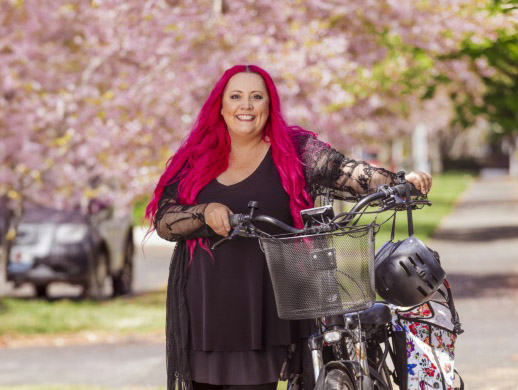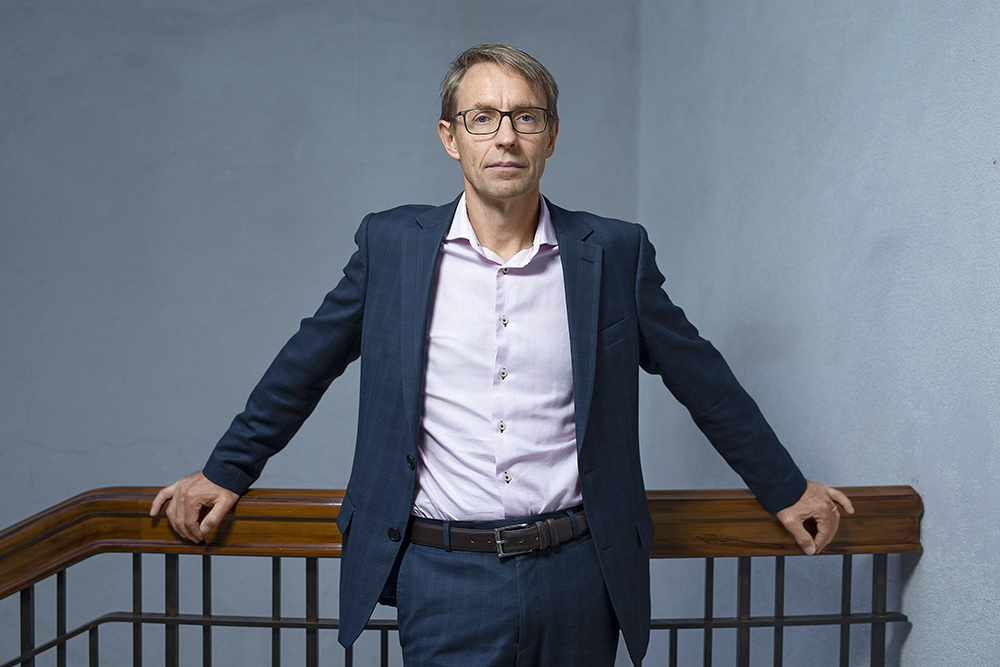Dr Siouxsie Wiles has a question: What is the world’s problem with strong women? The outspoken, pink-haired, rock-star scientist asks this at the beginning of the new documentary Ms Information, which follows the microbiologist through a two-year period during the COVID pandemic.
One of the experts Kiwis heard the most from during lockdown, she was praised with helping save the lives of thousands, but she also attracted a lot of haters, with her size, her hair colour and her science all becoming targets for abuse. She’s even had death threats, which have forced her family to take extra security measures.
“It’s still going on,” Siouxsie, 48, tells Woman’s Day. “In fact, it’s worse now than it’s ever been. So how am I surviving? Well, I’ve got an amazing family – they’re what keeps me going.”

Her husband, mathematics professor Steven Galbraith, and 17-year-old daughter Eve both appear in the documentary, although Siouxsie admits they might prefer less attention.
“Even though this makes them uncomfortable, they’re behind me 100%. They’d rather none of this had happened, but they think it’s an important story and so they’re willing to be involved.”
At times, the bullying has left Siouxsie, who was named New Zealander of the Year in 2021, feeling down and vulnerable, but she refuses to back away from what she considers an important part of her job as a scientist – communicating the latest scientific discoveries in a clear and accessible way.
“Why should I hide under a rock?” she asks. “People say I should change my hair colour to be less recognisable. But we don’t change anything by being victims and hiding away, and I’m not ashamed of who I am. I’m certainly not ashamed of my hair colour or my size. Lots of people seem to find that really quite confronting.”

Siouxsie has never taken kindly to bullies. As a teenager, having moved from South Africa to the UK, she was beaten up by some girls at school and chose to report them to the police.
So while it might make her less visible, she won’t be going back to her natural shade of dark brown and will continue visiting her hairdresser every five weeks to keep her long locks vibrantly pink, as they have been for more than 20 years.
“It’s interesting because when it needs to be redone, it affects my mood,” she says. “If it’s looking washed-out, then I feel washed-out personality-wise.”
As for the jibes about her body, there is a medical reason for her weight gain – Siouxsie has a hormonal condition called polycystic ovary syndrome.
“I must have been about 19 when I was diagnosed and they told me two things – you’ll struggle with your weight and you’ll probably experience trouble having a baby. My weight has steadily crept up since then.
“It’s kind of sad people assume that it’s because I eat terrible food and never exercise. Actually, I cycle everywhere and don’t drink. Maybe I could eat more vegetables, but I don’t have a bad diet.”
Her polycystic ovaries meant Siouxsie didn’t have regular periods, so she always assumed she wouldn’t be able to have kids. But after meeting Steven, they were looking into fertility treatment when Siouxsie got pregnant and had a miscarriage. Three months later, she was pregnant with Eve. At first, motherhood was difficult.
“I struggled with not feeling maternal and didn’t enjoy the baby stage,” tells Siouxsie. “I much prefer it when they’re older and you can do things with them.”

It’s evident from Ms Information, now in cinemas, that she and Eve have a close bond, and Siouxsie has since gone on to donate an egg to a friend who was having fertility problems.
“I had a reaction to the injections and there were complications with the egg collection, but we got 16 eggs and ended up with one embryo. It was for somebody close to us. We’ve always been very open about it with our families and the little person involved. I don’t feel like their parent, but I do love that child and I’m proud I could help.”
More challenges lie ahead for Siouxsie. She’s taking legal action against her employer, the University of Auckland, and a three-week court case begins next week. In the meantime, she won’t let threats and abuse prevent her from continuing to communicate about the latest science.
“We’re all holding on to the hope that I won’t be a target any more,” she says. “But the people who like me far outnumber those who hate me. A lot of them get very emotional when we meet. Often they want to touch me or hold my arm. It was a privilege for me to play the role I did during the pandemic and help people through what was a difficult time for us all.”


